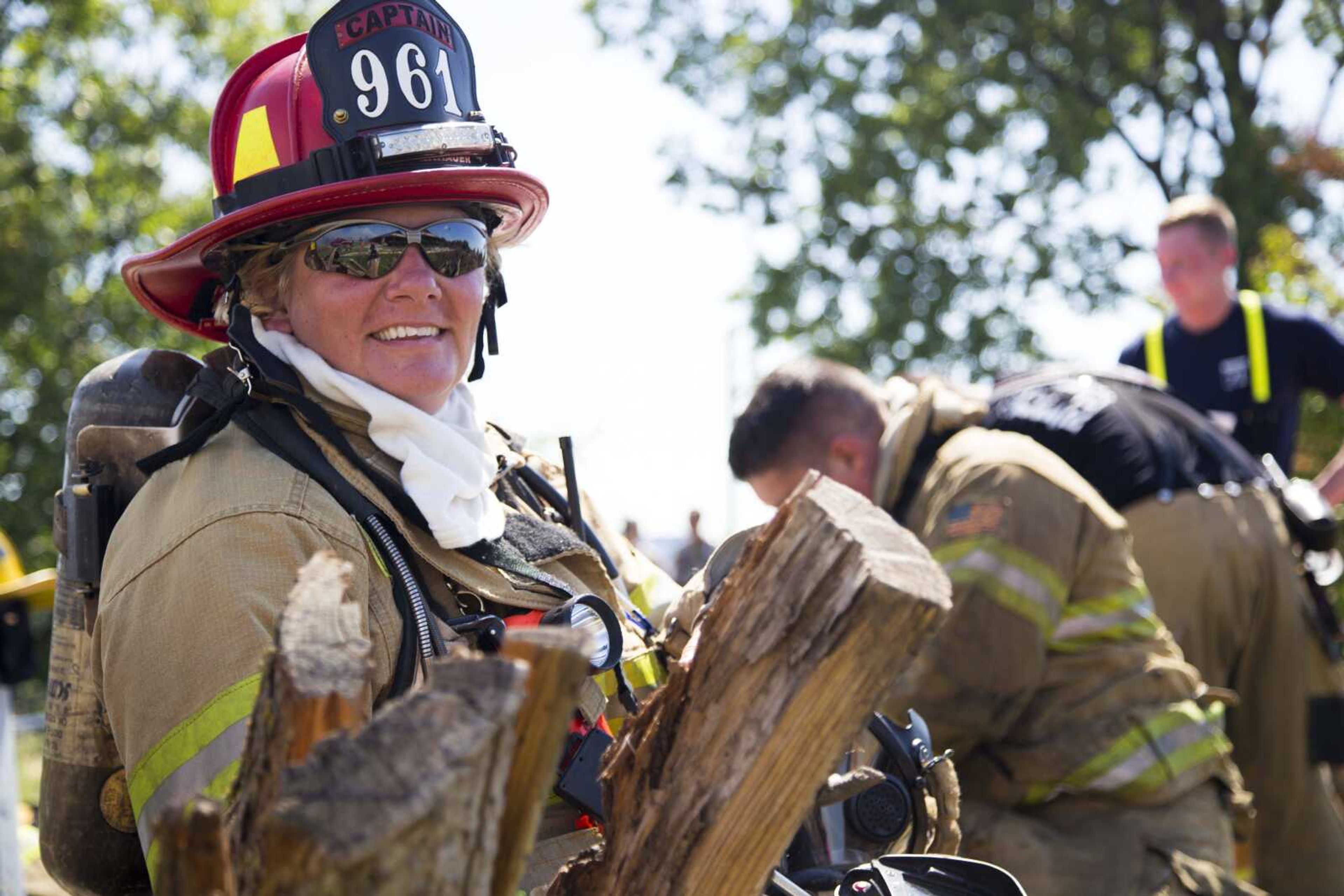Vicki Moldenhauer: Fighting more than just fires
Vicki Moldenhauer says she will never forget the feeling of helplessness she had after her grandfather’s truck was hit by a train. Though he survived the crash, she said she was at a loss for to how to help him. "It was the most helpless feeling that I'd ever had in my life that I couldn't help someone that I loved so much," she says. It was a feeling she never wanted to have again, and has since dedicated her life's work to helping people in times of crisis...
Vicki Moldenhauer says she will never forget the feeling of helplessness she had after her grandfather’s truck was hit by a train. Though he survived the crash, she said she was at a loss for to how to help him.
"It was the most helpless feeling that I'd ever had in my life that I couldn't help someone that I loved so much," she says.
It was a feeling she never wanted to have again, and has since dedicated her life's work to helping people in times of crisis.
Moldenhauer is a firefighter with the Cape Girardeau Fire Department, but that's not the way she started out her career.
After attending college for a year, she decided to become an Emergency Medical Technician (EMT). She then completed coursework to become a paramedic.
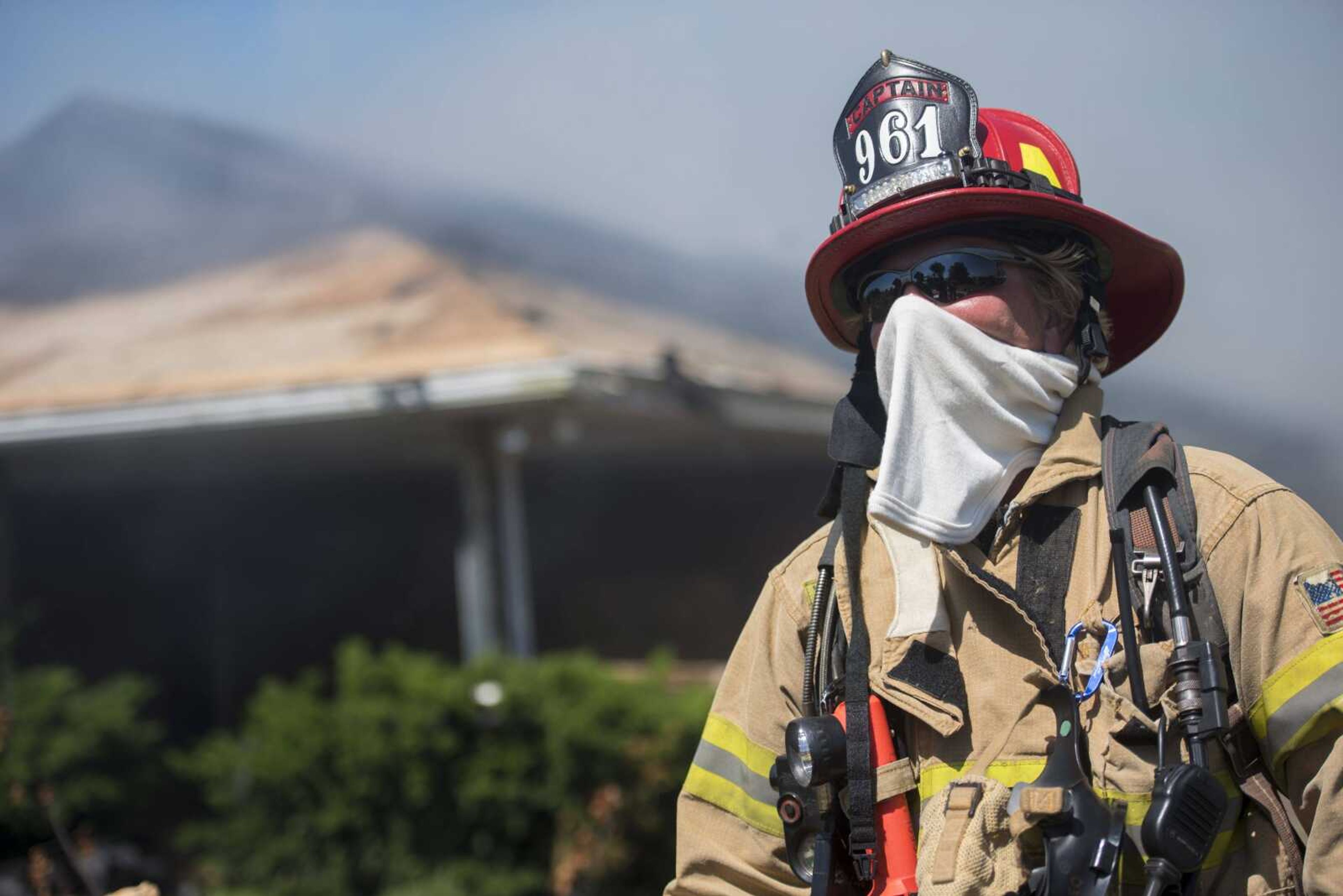
That led her to work as a flight medic, providing emergency medical services to people on route to a hospital via helicopter, which she did in addition to working on ambulances.
The fire chief at the time, Robert Ridgeway, approached her with the idea of joining the fire department, which at that time had no female firefighters.
Although being an EMT was a job she loved, at the time EMTs didn't have much by way of benefits, she explains.
"It was a job for the young," she says. "You did it and then you got out, because there was really no retirement. There was no career in it."
When she started looking at her options, she realized the fire department had very little turnover.
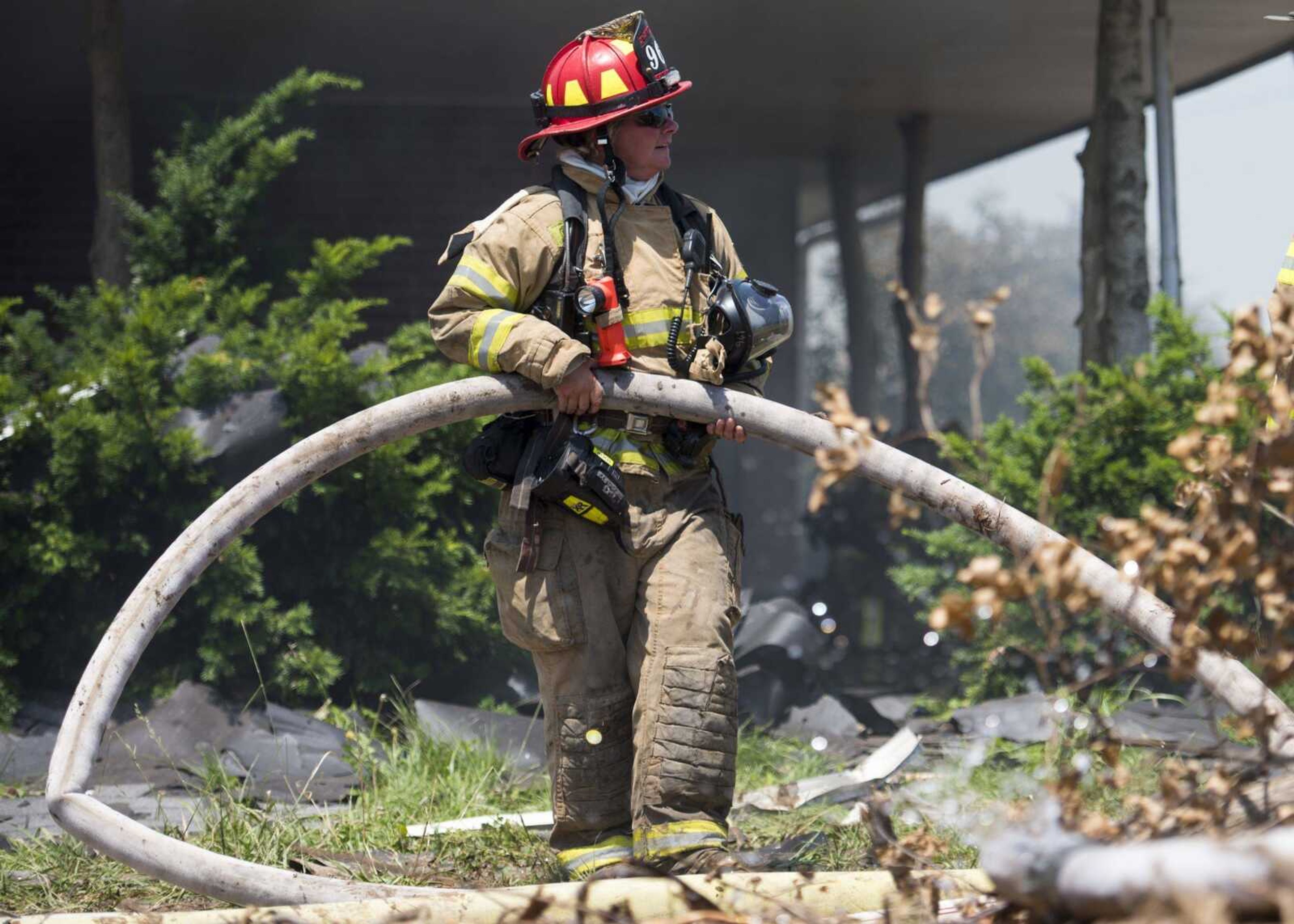
"Some of the last ones they hired had been hired 15 years ago," she says.
Ridgeway also implemented rapid response, so when a fire truck was dispatched it was accompanied by an ambulance.
After careful consideration, she decided to train as a firefighter.
"It wasn't handed to me, by any means," she recalls. "It was a grueling physical agility test, a written test and an oral interview with officers from other places, so it was non-biased."
The physical part of the test, which was a seven-minute timed test, required demonstrating acts of physical strength, like striking an object 50 times with a sledgehammer, an attic crawl, removing an extension ladder from a fire truck and replacing it.
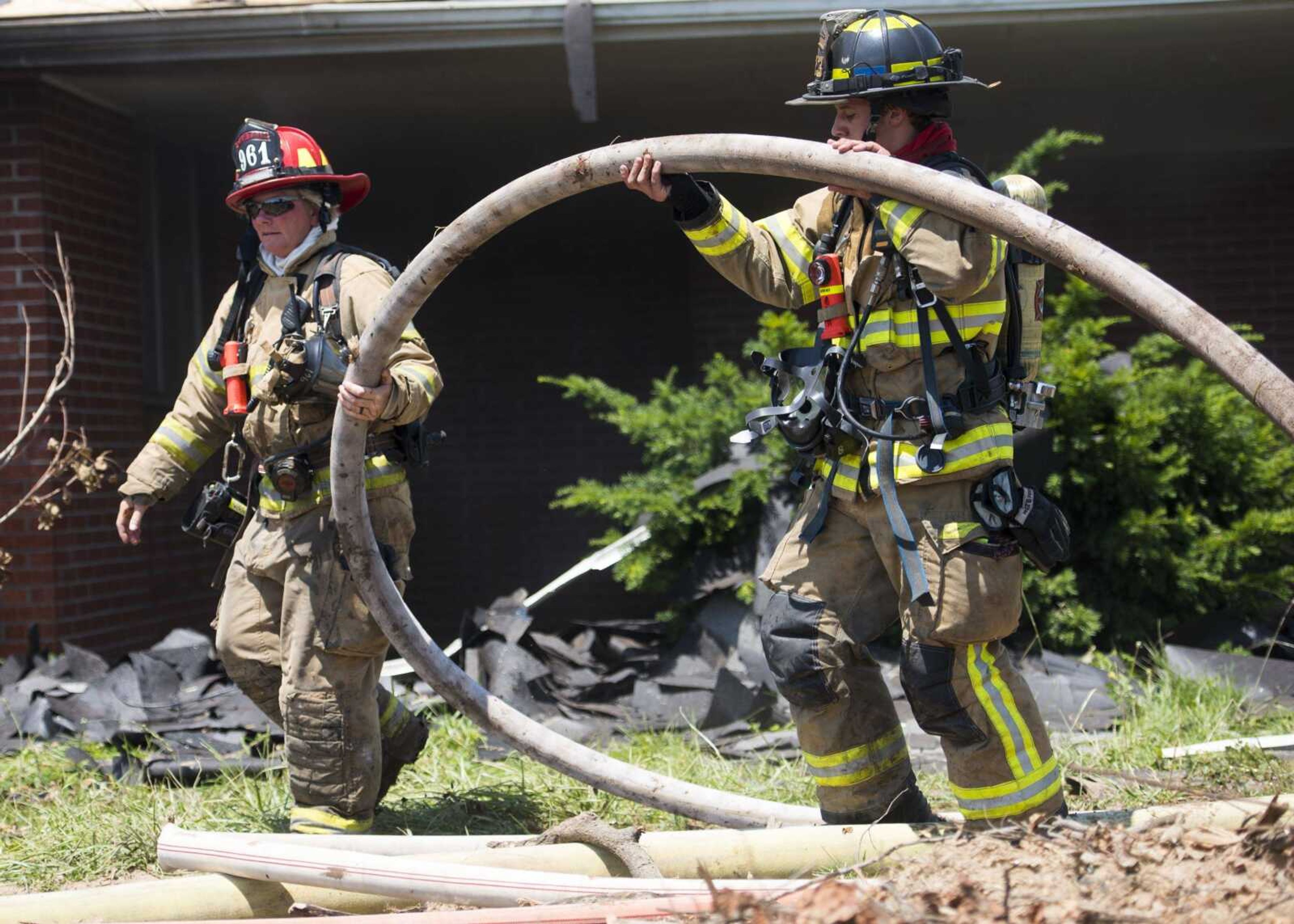
"What they want to do is fully wear out your arms. You had to take a fire hose and pull it out to the street, which you're pulling about 200 pounds. You take a sandpipe kit, which is a hose, and throw it over your shoulder and run up four flights of stairs with it," she says.
Then you had to run back down the stairs and throw it up on a shelf.
"Then you had to go outside and drag a 160-pound dummy all the way down the sidewalk," she says.
She remembers that just before she was called into the physical agility test, a member of the fire department started to rough her up a bit, backing her into a corner.
"He was smacking me on top of the helmet," she recalls.
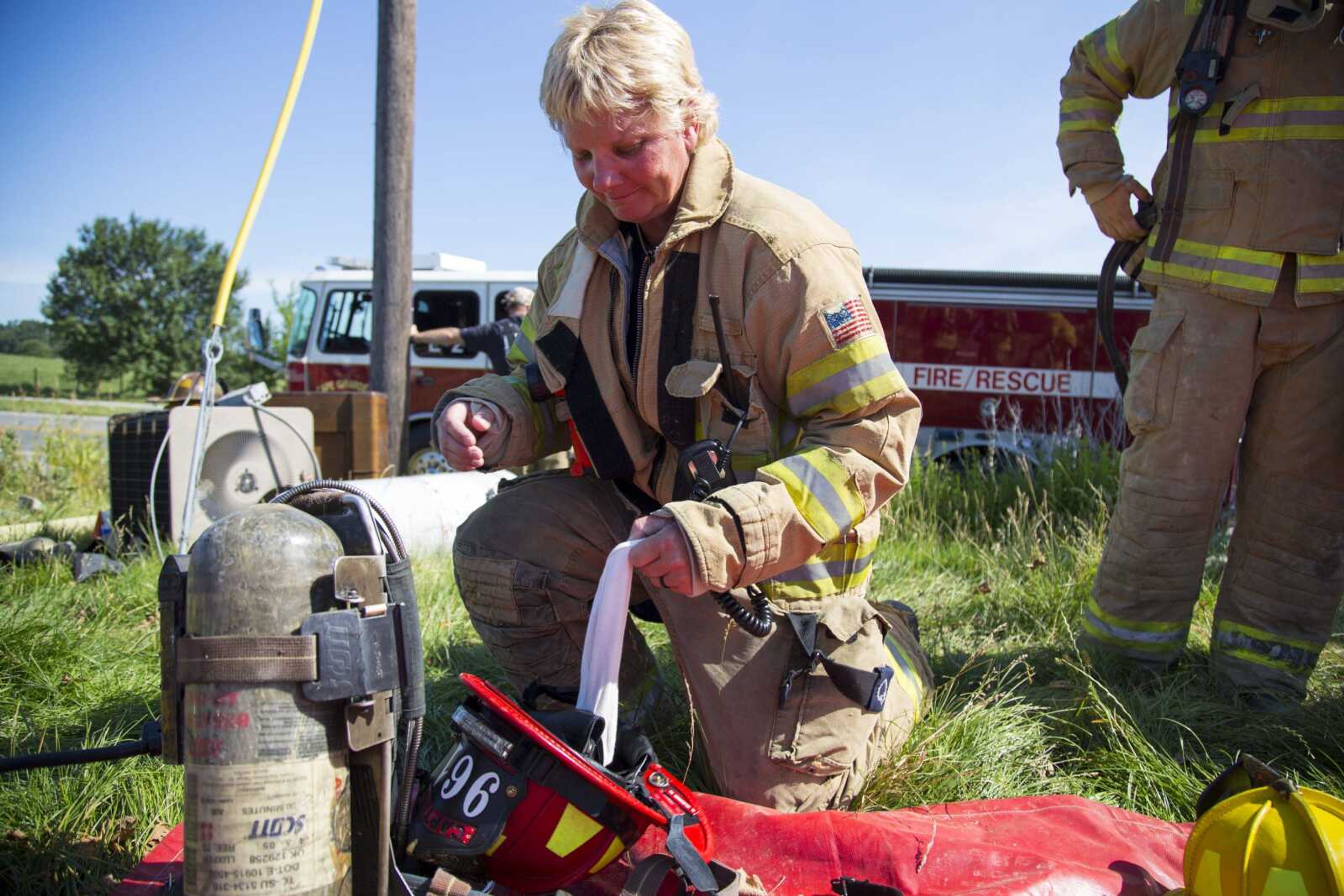
"'Come on,' he jeered, "'you want to be a firefighter, show me what you're made of.'"
"He kept pushing me against the wall, and smacking my helmet," she says.
She remembers questioning her decision to become a firefighter at that moment, but just then her name was called.
"I smoked the test in 5 minutes and 40 seconds."
The firefighter who had been taunting her walked up to her after the test, gave her a hug and said he was sorry.
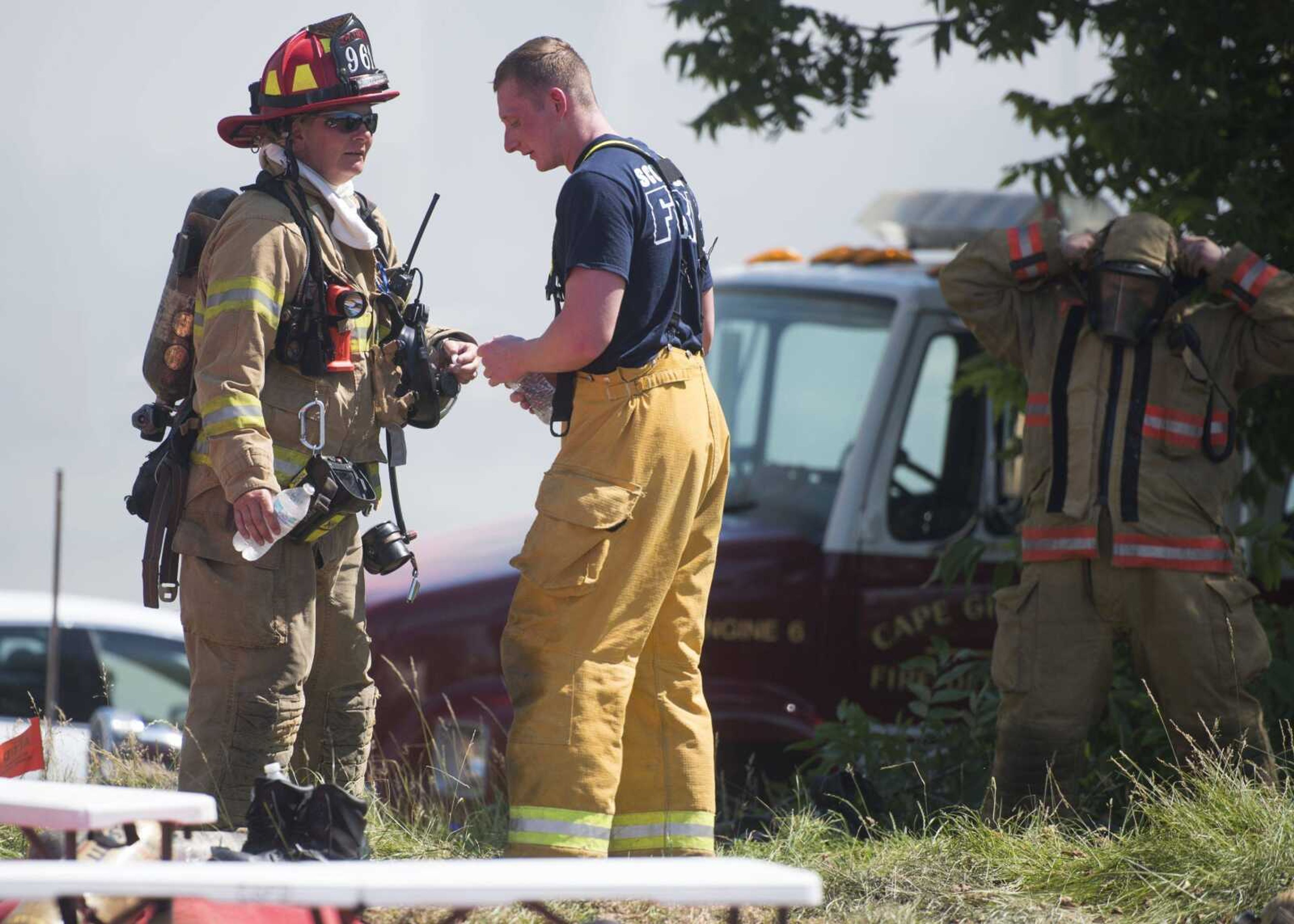
But there was a purpose for the way he'd treated her just before the test.
"He'd done me a favor," she muses. "He had me so stinkin' mad before the test that I was ready to whip everybody. It took the intimidation and fear out of me."
Since Moldenhauer's entry, there has been a second female firefighter join the department.
Throughout her time on the firefighting staff, Moldenhauer has worked in many different capacities.
"I'm a firefighter. I've worked as a captain. I've held a position as acting battalion chief," she says.
She's fought so many fires she's lost count, and each role she had in fighting one requires a different skill set, like reading the color and direction of the smoke.
In addition to fighting fires, members of the Cape Girardeau Fire Department also perform water rescues, high-angle rescues, trench rescues and HAZ-MAT rescues, provide medical services and extricate victims when needed.
"We wear a lot of different hats," she says.
There's no one job, because the order in which the fire trucks arrive determines which role that group will play in fighting the fire.
"I'm a captain, so I lead my guys in," she says. "If I'm first on the scene, I'm doing the structural size-up, reading the smoke, and finding out how the building is made."
That's necessary to judge how long firefighters can safely stay inside a building before it might begin to collapse.
Moldenhauer says she loves her job for several reasons.
"Your fire brothers and sisters are your family," she says.
They are extended family members because firefighters work 24-hour shifts every other day for eight days, before a four-day break.
There's hardly a down moment during the day. Every day they go to the gym for at least an hour, followed by some kind of training, including continuing education classes to keep their medical licensure.
"The learning never ends," she says. "The fire service is not just about fire anymore."
Connect with the Southeast Missourian Newsroom:
For corrections to this story or other insights for the editor, click here. To submit a letter to the editor, click here. To learn about the Southeast Missourian’s AI Policy, click here.

